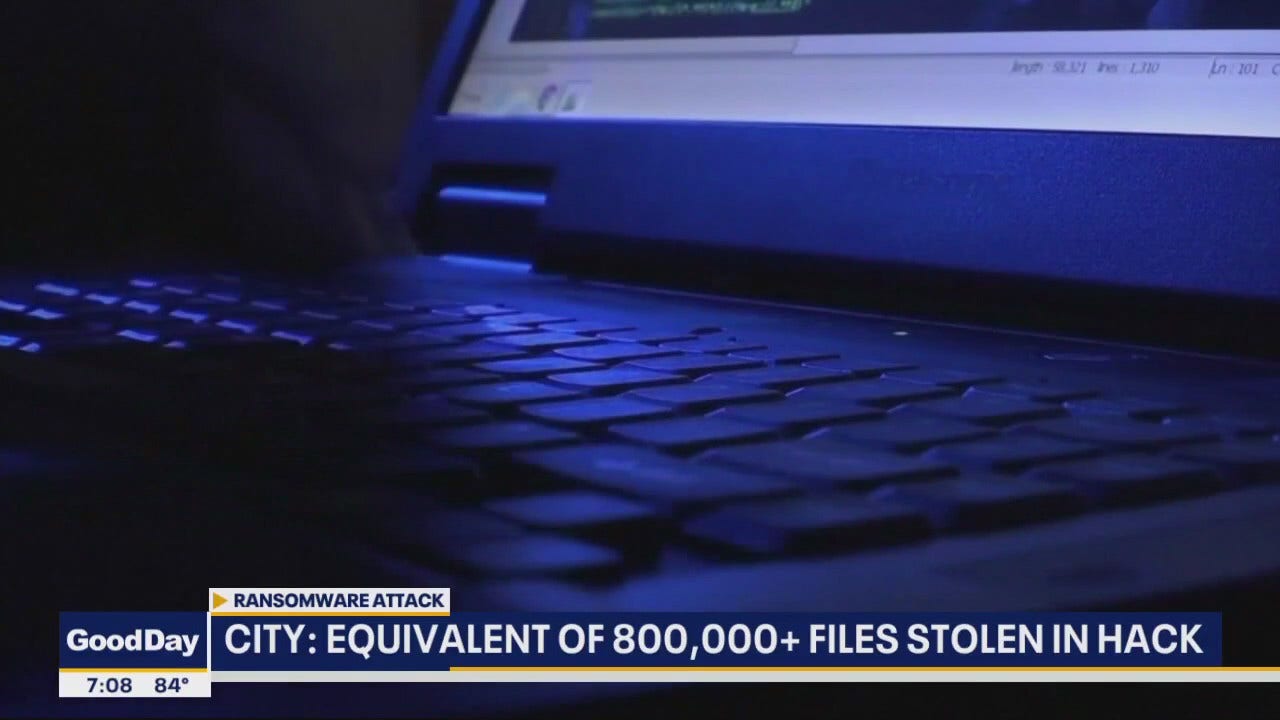
CISOPlatform Breach Intelligence Report - July 2, 2025
CISOPlatform Breach Intel July 2, 2025 - Qantas Airways, Catwatchful, Fort Bend County
Executive Summary: This comprehensive breach intelligence report analyzes three critical cybersecurity incidents from July 2025, providing CISOs and security professionals with actionable insights into emerging threat vectors, attack methodologies, and defensive strategies.
Welcome to CISOPlatform's latest breach intelligence report. As cybersecurity threats continue to evolve, staying informed about the latest incidents is crucial for maintaining robust organizational security postures. This report examines three significant breaches that occurred in early July 2025, each representing different attack vectors and organizational vulnerabilities.
Key Breach Incidents Overview
Qantas Airways
Type: Third-Party Supply Chain Breach
Impact: 6 million customer records
Attribution: Scattered Spider threat group
Catwatchful
Type: Stalkerware Database Exposure
Impact: 62,000 perpetrator accounts, 26,000 victim devices
Root Cause: SQL injection vulnerability
Fort Bend County
Type: Ransomware Attack
Impact: Complete library system compromise
Root Cause: Public-facing servers, outdated systems

Qantas Airways Third-Party Data Breach
Incident Overview and Timeline
On July 2, 2025, Qantas Airways confirmed a significant cyberattack affecting approximately six million customers. The incident was first detected on June 30, 2025, when security teams identified unusual activity on a third-party customer servicing platform used by the airline's Manila-based call center. The breach represents one of Australia's most significant cyber incidents since the Optus and Medibank attacks in 2022.
Technical Analysis and Attribution
The attack bears the distinct hallmarks of the Scattered Spider threat group (also known as Muddled Libra, UNC3944, and Octo Tempest). This English-speaking collective is renowned for sophisticated social engineering and identity-based attacks targeting customer support and IT help desks.
MITRE ATT&CK Mapping - Qantas Breach
- T1566.002 (Phishing: Spearphishing Link) - Initial access through social engineering
- T1078.004 (Valid Accounts: Cloud Accounts) - Compromised third-party platform access
- T1530 (Data from Cloud Storage Object) - Customer data exfiltration
- T1199 (Trusted Relationship) - Third-party vendor compromise
Scope of Impact and Data Compromised
The breach affected service records of six million Qantas customers, primarily Australian with some New Zealand clients. Compromised data included:
- Full Names
- Email Addresses
- Phone Numbers
- Dates of Birth
- Qantas Frequent Flyer Numbers
Critically, credit card details, financial information, passport details, and login credentials were not compromised as they were not stored on the affected system.
Indicators of Compromise (IOCs)
Behavioral Indicators:
- Unusual access patterns to customer service platforms
- Anomalous API calls to customer data repositories
- Suspicious help desk password reset requests
- Unauthorized access to third-party vendor systems

Catwatchful Stalkerware Operation Exposure
Incident Overview
On July 2, 2025, security researcher Eric Daigle exposed a critical vulnerability in "Catwatchful," an Android stalkerware application. The breach resulted in complete exposure of the spyware operator's customer database, including plaintext credentials, and revealed the identity of its administrator, Omar Soca Charcov from Uruguay.
Technical Analysis
The breach resulted from a custom-made, unauthenticated API vulnerable to SQL injection. This API served as the communication bridge between the spyware and operator servers, with no authentication requirements.
MITRE ATT&CK Mapping - Catwatchful Breach
- T1190 (Exploit Public-Facing Application) - SQL injection exploitation
- T1552.001 (Unsecured Credentials: Credentials In Files) - Plaintext password storage
- T1005 (Data from Local System) - Victim device data collection
- T1113 (Screen Capture) - Screenshot collection capability
- T1123 (Audio Capture) - Microphone surveillance
Scale of Exposure
The compromised database revealed:
- Over 62,000 Customer Accounts: Email addresses and plaintext passwords of stalkerware users
- Data from 26,000 Victim Devices: Sensitive stolen data from monitored individuals
- Geographic Distribution: Primarily Latin America (Mexico, Colombia, Peru, Argentina, Ecuador, Bolivia) and India
- Historical Data: Records dating back to 2018
Indicators of Compromise (IOCs)
Detection Method: Dial **543210** on Android devices to reveal hidden Catwatchful installation
Network Indicators:
- Unusual outbound traffic to Firebase platforms
- Suspicious API calls to unauthenticated endpoints
- Anomalous data uploads from mobile devices

Fort Bend County Ransomware Attack
Incident Overview
Fort Bend County, Texas, suffered a catastrophic ransomware attack discovered on February 24, 2025. The attack completely crippled the library system's network, with recovery costs reaching millions of dollars and full service restoration not expected until September-October 2025.
Attack Methodology and Root Cause Analysis
Post-incident assessment revealed severe foundational security failures:
- Public IP Exposure: All servers and computers assigned public IP addresses
- Outdated Systems: Unsupported operating systems and hardware
- No Security Monitoring: Complete absence of detection capabilities
- Double Extortion: Data encrypted and exfiltrated
MITRE ATT&CK Mapping - Fort Bend County
- T1190 (Exploit Public-Facing Application) - Direct internet exposure exploitation
- T1486 (Data Encrypted for Impact) - Ransomware deployment
- T1567.002 (Exfiltration Over Web Service) - Data theft before encryption
- T1078 (Valid Accounts) - Compromised administrative credentials
- T1021 (Remote Services) - Lateral movement across network
Broader Ransomware Context H1 2025
The Fort Bend County incident reflects broader ransomware trends:
- 3,627 total attacks in H1 2025 (47% increase from 2024)
- Average ransom demand: $1.6 million
- Average recovery costs: $1.53 million (excluding ransom)
- Most active groups: Akira, Clop, Qilin, RansomHub
- Government sector: 60% increase in attacks
Strategic Threat Intelligence Analysis
Emerging Threat Patterns
Analysis of these incidents reveals critical trends in the current threat landscape:
Third-Party Risk Escalation
Supply chain attacks doubled to 30% of breaches, with threat actors targeting weaker vendor security to bypass primary target defenses.
Identity as Primary Battleground
Help desk social engineering attacks targeting IAM systems, circumventing technical controls through procedural exploitation.
Foundational Security Debt
Critical infrastructure failures enabling catastrophic breaches through basic hygiene neglect and technical debt accumulation.
CISO Strategic Recommendations
Immediate Priority Actions
1. Third-Party Risk Management Overhaul
- Implement continuous monitoring of third-party vendors beyond compliance questionnaires
- Mandate stringent security requirements in contracts with breach notification timelines
- Extend internal identity governance policies to all third-party and contractor accounts
- Establish right-to-audit clauses for vendors with access to sensitive data
2. Identity and Access Management Hardening
- Treat IT help desk as critical security control point with multi-layered verification
- Implement phish-resistant MFA (FIDO2/passkeys) for all employees, especially privileged users
- Conduct sophisticated social engineering training and testing for help desk staff
- Establish rigorous identity verification processes resistant to manipulation
3. Foundational Security Investment
- Eliminate critical vulnerabilities through systematic technical debt reduction
- Replace unsupported hardware and software across the enterprise
- Implement comprehensive network segmentation to limit lateral movement
- Deploy robust security monitoring and EDR solutions organization-wide
Long-term Strategic Initiatives
API Security Program
- Discover and inventory all APIs across the organization, including third-party usage
- Implement comprehensive API security strategy with strong authentication and authorization
- Deploy rate limiting and continuous monitoring for anomalous API activity
- Integrate API security testing into CI/CD pipeline for vulnerability identification
Threat Intelligence Integration
- Maintain awareness of evolving threat actor TTPs, particularly groups like Scattered Spider
- Adapt defensive postures based on sector-specific targeting intelligence
- Conduct tabletop exercises simulating specific threat actor tactics
- Establish threat intelligence sharing partnerships with industry peers
Threat Landscape Analysis
Scattered Spider Evolution
The Scattered Spider threat group demonstrates sophisticated evolution in targeting methodology. Their recent pivot to aviation follows successful campaigns against financial, insurance, and retail sectors. Key characteristics include:
- Social Engineering Expertise: Advanced vishing and phishing capabilities targeting help desk personnel
- Identity-Focused Attacks: Specialization in IAM system exploitation and credential manipulation
- Third-Party Targeting: Strategic focus on weaker vendor security to access primary targets
- Sector Concentration: Intensive focus on single industries before tactical pivoting
Ransomware Ecosystem Maturation
The ransomware landscape in 2025 demonstrates increased sophistication and targeting precision:
Key Ransomware Trends H1 2025
- 47% increase in total attacks compared to H1 2024
- Double extortion as standard operating procedure
- BYOVD techniques to disable security solutions
- Government targeting increased 60% due to perceived soft targets
- Supply chain focus for maximum impact and leverage
Surveillance Software Risks
The Catwatchful incident highlights systemic security failures in the stalkerware industry, creating dual victimization scenarios affecting both monitored individuals and perpetrators. Organizations must consider:
- Corporate Device Monitoring: Implement MDM solutions to detect unauthorized surveillance software
- Employee Education: Awareness programs about stalkerware risks and detection methods
- BYOD Policy Review: Establish clear policies for personal device usage in corporate environments
- Privacy Protection: Ensure corporate data protection extends to employee personal privacy
Conclusion and Forward-Looking Insights
The July 2025 breach incidents analyzed in this report demonstrate the evolving and persistent nature of cybersecurity threats across different sectors and attack vectors. From third-party supply chain vulnerabilities to stalkerware risks and foundational security failures, organizations must maintain vigilance and adapt their security strategies accordingly.
The common thread across these incidents is the critical importance of proactive security measures, rapid incident response, and transparent stakeholder communication. Organizations that invest in comprehensive cybersecurity programs, including regular security assessments, employee training, and incident response planning, are better positioned to prevent, detect, and respond to cyber threats.
Key Takeaways for CISOs
- Third-party risk management requires continuous monitoring beyond compliance frameworks
- Identity and access management systems represent the primary battleground for modern threats
- Foundational security hygiene remains non-negotiable despite advanced threat sophistication
- API security demands the same rigor as traditional infrastructure protection
- Rapid detection and response capabilities are critical for minimizing breach impact
- Transparent communication and stakeholder engagement are essential during incident response
As we continue to monitor the evolving threat landscape, CISOPlatform remains committed to providing timely, actionable intelligence to help security professionals protect their organizations. The incidents analyzed in this report underscore the need for adaptive security strategies that address both emerging threats and fundamental security principles.
Author: Priyanka, Co-Founder and Editor, CISO Platform Breach Intelligence
Related CISOPlatform Resources
- Incident Response Playbook 2025: Best Practices for Modern Threats
- Third-Party Risk Management: A Comprehensive Framework for CISOs
- Ransomware Defense Strategy: A Comprehensive Guide for CISOs
- Threat Intelligence Integration: Building Proactive Security Operations
For more breach intelligence reports and cybersecurity insights, visit CISOPlatform.com and subscribe to our threat intelligence updates.
Nominate for Global CISO 100 Awards & Future CISO Awards (1-2 October Atlanta, USA): Nominate Your Peer

Comments